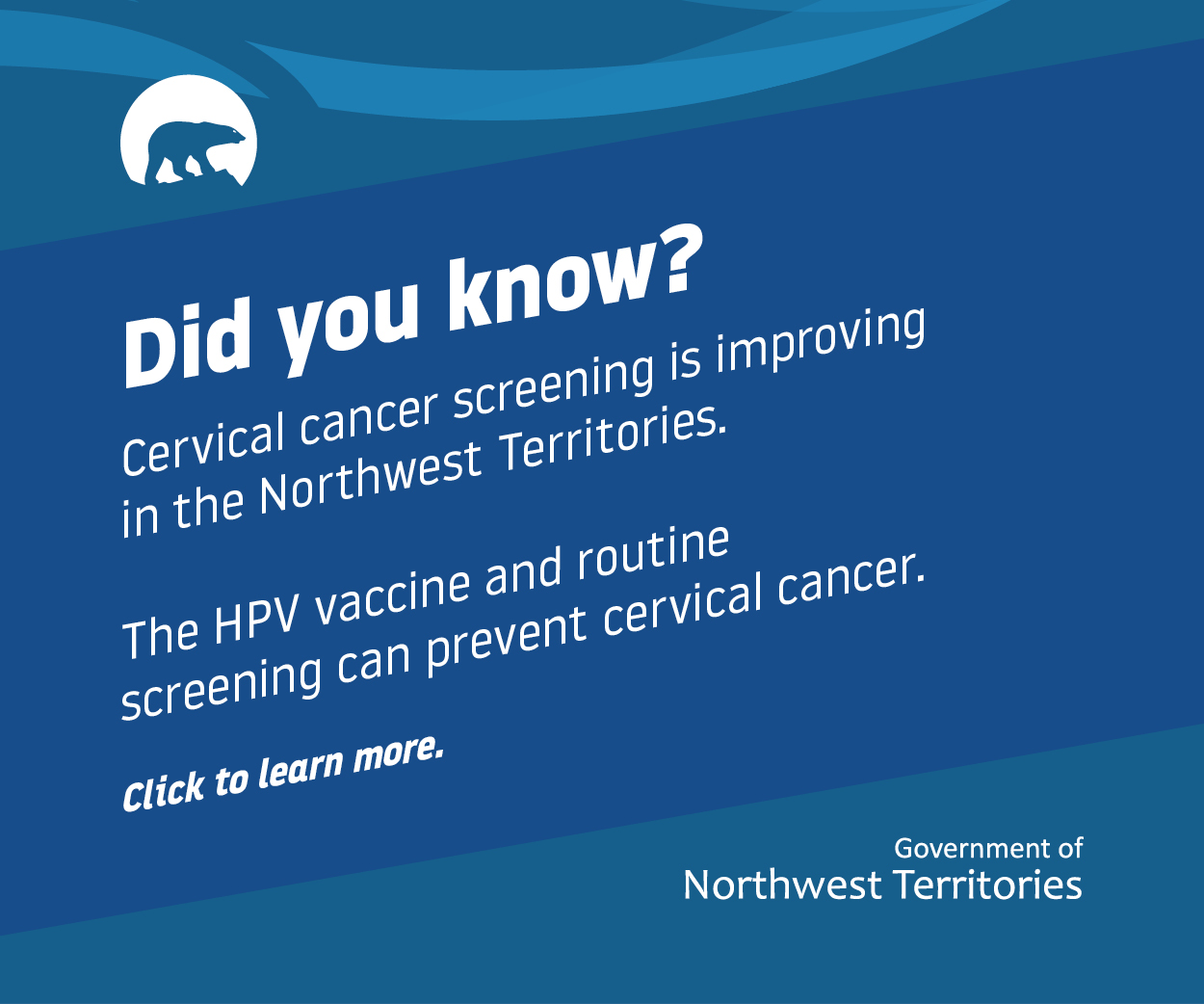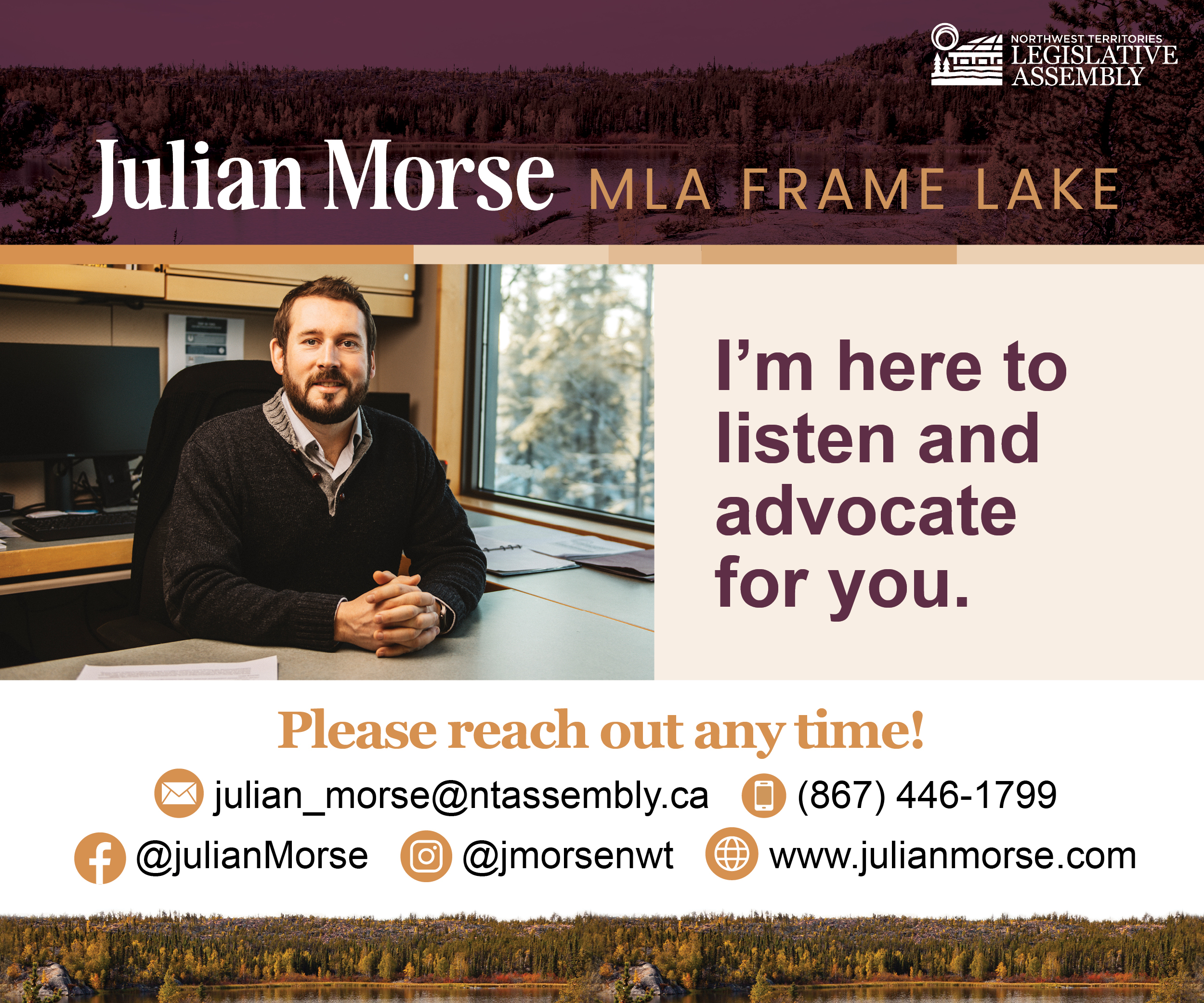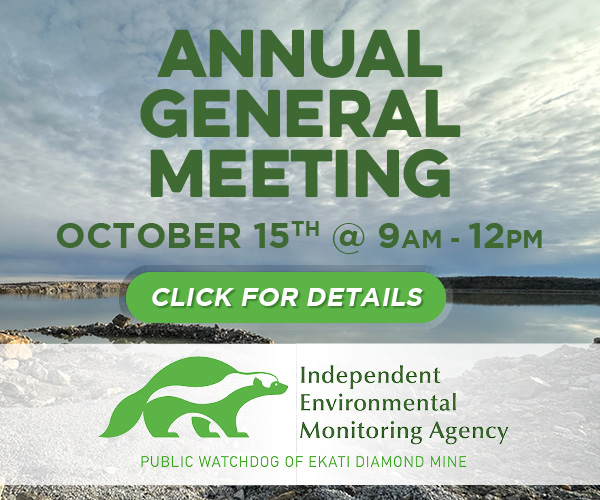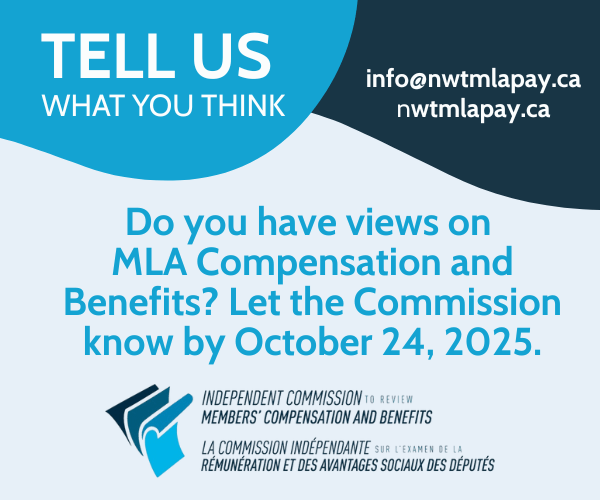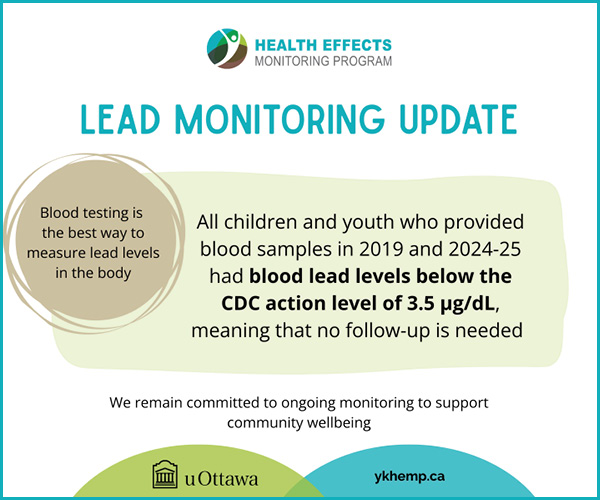“An employer must act with procedural fairness and proportionality, meaning that investigations must be grounded in specific, credible complaints.”
That’s how labour arbitrator Amanda Rogers framed the way she would assess the NWT health authority’s decision to launch a major investigation after an MLA alleged a nurse provided care that was racist and inadequate.
We’ve already explored existing tensions at Fort Resolution’s health centre, looked at media coverage of residents’ concerns, and gone inside the subsequent investigation that cleared the nurse of any wrongdoing.
In this fourth installment, we’re going to mostly set aside the involvement of MLA Richard Edjericon and focus on whether the health authority took the right steps in handling the situation.
We’ll hear from three parties: the Union of Northern Workers, the health authority and the labour arbitrator.
Why did the union file a grievance about the health authority’s treatment of Fort Resolution nurse-in-charge Jennifer Patterson? How did the health authority defend its actions? And what did the arbitrator decide?
This article is based on the arbitrator’s ruling, which came out at the end of August, nearly three years after the events at the heart of the case. Parts of the arbitration process are still playing out.
Rogers, the arbitrator, said she was tasked with deciding two things:
did the health authority provide Patterson with a safe and harassment-free workplace? and
did the health authority abuse its authority by launching an investigation into the complaints lodged against Patterson, and was the investigation process unfair?
Here’s what she concluded.
The union’s complaint
The arbitrator reproduces a letter from the Union of Northern Workers that sets out exactly what the union felt was wrong with the NWT health authority’s handling of the situation.
A brief recap: Jennifer Patterson said she had been documenting regular instances of abuse and harassment directed at her and other Fort Resolution healthcare workers. She was then the focus of a campaign by Tu Nedhé-Wiilideh MLA Richard Edjericon to have her removed from her job, which led to Patterson’s suspension with pay in early December 2022. An investigation cleared her of wrongdoing by the end of February.
In March 2023, UNW representative Chris Parsons filed a formal grievance with the NWT government on Patterson’s behalf.
Parsons alleged the health authority had been aware of “harassment, assaults, sexual assault, threats and discrimination against healthcare practitioners” in multiple communities for more than five years but had used its own incident reporting policies “to intentionally hide these occurrences from the union.”
In Parsons’ view, Edjericon – whose letter triggered the investigation into Patterson, and who was able to select some of the witnesses interviewed by lawyers – had been “abusing his authority and bullying” the nurse. (Edjericon declined to comment on the arbitrator’s findings “out of respect for the parties involved in the application before the labour board.”)
“Aside from having access to confidential information throughout the investigation, the MLA also carried the power to influence the investigation,” Parsons wrote. He noted that investigators had concluded Edjericon was the author of letters to the health authority that purported to be from the local mayor and Métis council president.
One of the union’s key allegations was that the health authority had moved into a full-blown independent investigation without stopping to assess whether the accusations against Patterson were backed up by evidence.
“In the very few instances where some detail was provided, it was determined that all the actions performed by Ms Patterson, as alleged, were consistent with GNWT policies,” the union wrote.
“It turned out that in several other incidents being investigated, Ms. Patterson was never in the community at the times alleged, which is information the employer would have had,” he added, if some simple due diligence had occurred.
In essence, Parsons continued, witnesses called by the lawyers “were simply asked to speak about if they believe [Patterson] has ever acted in bad faith, breached conduct, discriminated against community members, etc. This investigation itself was clearly nothing more than a targeted attack.”
Meanwhile, the union asserted, employees felt their own concerns about abuse and harassment had “gone unaddressed.”
“Healthcare staff have lost faith in the employer’s ability to protect them from harassment,” Parsons wrote.
“This particular incident only goes to show that if you don’t give individuals what they want or do as they say, despite it being consistent with the employer policies and code of conduct/ethics, they can effectively terminate your employment in the community.”
The health authority’s defence
Arbitrator Rogers summed up the NWT health authority’s defence in her August decision.
She said the health authority considered its actions to be, in her words, “a reasonable response to legitimate and serious community concerns, emphasizing that the formal complaints against [Patterson] were signed by elected leaders speaking on behalf of their constituencies.”
“The employer contends it was not only reasonable but necessary to treat these letters seriously, especially given their explicit references to discrimination and substandard care received by an overwhelmingly Indigenous community,” Rogers wrote.
She added the health authority had emphasized that “an employer cannot simply disregard complaints as unfounded without inquiry when faced with allegations of racism or denial of care in public healthcare.”
The health authority defended the broad terms of reference given to the law firm it hired for the investigation, while denying that Edjericon’s involvement in that investigation “amounted to an improper exercise of authority or a departure from procedural fairness.”
Instead, Rogers said, the GNWT had argued “that this approach sought to maximize community buy-in and ensure the impartiality of the outcome.”
The arbitrator said it was the GNWT’s view that “the investigation resulted in [Patterson’s] complete exoneration and that she was at no time subject to discipline or loss of base pay.”
“The employer submits,” Rogers concluded, “that any harm suffered arose not from management’s actions but from the inherent volatility of the situation and the actions of individuals outside its direct control.”
Lastly, Rogers said, the health authority defended its actions related to harassment of staff by pointing to “progressive steps taken to address concerns, such as meetings with local leaders, the dispatch of ‘kindness letters,’ and the provision of wellness resources to staff.”
“The employer submits these measures satisfied its duties under the collective agreement,” she wrote, “particularly in a setting where tensions between staff and community are complex, longstanding, and attributable in part to historical trauma and policy constraints outside any individual manager’s control.”
The arbitrator’s verdict
Rogers disagreed with virtually everything the health authority said in its defence.
In a scathing ruling, the arbitrator said the health authority had failed to provide a safe, harassment-free workplace for staff at the health centre.
Nurses were “routinely subjected to verbal abuse, threats, and social media attacks from members of the community, a reality repeatedly brought to the employer’s attention over a sustained period,” Rogers wrote.
“The pattern of harassment was not limited to a handful of isolated incidents but reflected a systemic, well-understood dynamic acknowledged at various times by senior management.
“While certainly I acknowledge the situation is complex, given the historical treatment of Indigenous people in Canada and the essential nature of healthcare, I find the employer’s efforts to address this unacceptable level of abuse directed toward health centre employees fell short of meeting its obligation to take reasonable measures to ensure the workplace was safe for its employees.”
She said training offered to staff to “increase their resiliency and agility in these kinds of situations” was important but “cannot be the primary defence mechanism against third-party abuse.”
As far as she could tell, Rogers added, “the only consequence for engaging in abusive behaviour toward staff was that if it occurred on a phone call, that phone call would be ended.”
‘No credible, first-hand evidence’
Next, Rogers turned to the decision to launch an investigation into Patterson’s conduct and suspend her with pay.
“I find the employer’s decision to engage a disciplinary investigation process following receipt of the written complaint letters – rather than to launch a community-engagement focused process aimed at hearing and responding to the community’s concerns, to help heal the fractured relationship and build the community engagement necessary to address the concerns brought forward by residents of Fort Resolution – was unreasonable and constituted an abuse of power,” she wrote.
She said the allegations against Patterson were serious and could not be ignored, but “the lack of particulars provided in the original complaint letters ought to have been resolved before a full-blown investigation was launched.”
“It is beyond question that racist behaviour is harmful and that it must be addressed if it is taking place,” Rogers wrote.
“However, the employer was well aware of the ongoing hostility from some members in the community toward health centre employees and was well aware of where this hostility was coming from.
“Community members were frustrated over being told by health centre employees that they could not provide emergency care, could not transport patients to the health centre, or authorize travel to other facilities. They were angry at the lack of services available in their community and unhappy to have this message repeated to them in a time of crisis.”
The health authority already demonstrated that it knew all of this in its response to a 2022 NNSL news article about residents’ concerns, Rogers wrote, and ought to have taken time then to launch a “community-focused endeavour to speak with residents and hear their concerns.”
Had the health authority done that, Rogers said, it could have avoided “what happened next as the anger and frustration of Fort Resolution community members became targeted at a single individual, who incidentally was responsible for performance managing employees, and I understand from the evidence had recently undertaken some performance management of an Indigenous staff member closely connected to Mr Edjericon.”
Rogers, like the union, wondered why no basic steps had been taken to assess the allegations contained in the letters Edjericon sent.
“Had the complainants in this case simply been asked to provide specifics about the allegations they wanted investigated, this preliminary inquiry would have uncovered that Mr Edjericon on his own had launched a campaign against [Patterson] and that the other community leaders who had purportedly written complaint letters had not, in fact, written them at all,” she wrote.
“The employer’s rationale for proceeding immediately to suspension and investigation was that the letters were signed by elected leaders, but at no point did it attempt any preliminary inquiry – such as basic interviews, chart reviews, or internal file checks – to test the particulars.
“No community members emerged to provide credible, first-hand evidence of racism or malice.”
Rogers asserted: “No one can properly defend themselves against a broad statement that they are racist. What did they do that was allegedly racist? What did they say, to whom, and when?
“These are the questions that needed to be answered before an investigation [into] alleged misconduct was launched.”
A ‘punitive fishing expedition’
Ultimately, Rogers decided, it was a “dramatic shift of gears” for the health authority to open an investigation into Patterson.
“At no time prior had there been any indication that the employer actually believed there was merit to the allegations,” the arbitrator wrote.
Rather than address the issues faced in Fort Resolution head-on, she continued, the health authority “used a disciplinary process [to] gather information about the community’s frustration and provide an outlet to the community to voice their general discontent with the medical services provided by the territory.”
The result, said Rogers, was an investigation into “any conceivable instance of unprofessionalism over a four-year period” that robbed Patterson of “basic procedural fairness.”
In particular, Rogers said:
nobody gave Patterson the complaint letters or even a summary of the allegations against her until 11 days after she was suspended;
she wasn’t told of the allegations that would be raised in her first interview with the lawyers until midnight at the start of that day; and
the investigation “proceeded with repeated, leading questions of colleagues and community members about generic ‘concerns’ with her manner or decisions, often disconnected from any specific events.”
Edjericon’s intervention with a fresh list of more witnesses, Rogers said, “transformed an already unnecessary and overly unwieldy process into a punitive fishing expedition and only exacerbated the harm.”
She said the health authority compromised the integrity of the investigation by agreeing to Edjericon’s request that more witnesses on his list be interviewed.
Reaching a conclusion, Rogers said the damage to Patterson’s reputation in the community and the territory, “including the circulation of false rumours that she had been fired for racism and the ongoing sense among staff that her removal had been a successful campaign by a hostile minority, was foreseeable, substantial, and avoidable.”
The health authority “neither corrected the record nor provided any meaningful communication to staff or the community following her exoneration,” Rogers wrote.
“In all of the circumstances, I find that the employer’s conduct violated its obligations.
“The employer’s failures were both of action and omission: it failed to take reasonable, proactive measures to protect Ms Patterson and other staff from entrenched patterns of harassment and threats by third parties, and it abused its management authority by suspending and investigating Ms Patterson in a manner that was not justified by the evidence available and was not conducted with the fairness, transparency and proportionality required.”
What should change?
Patterson said she cannot discuss her case or the arbitrator’s ruling as the last parts of that process are ongoing. In particular, the matter of compensation is still being decided.
More broadly, the arbitrator’s report was welcomed by healthcare workers in the territory who spoke with Cabin Radio.
“I think the arbitrator clearly saw how badly the employer had failed the nurses and Jen in particular, 100 percent,” said one, asking for anonymity as they remain a GNWT employee. “It’s so obvious in that report.”
In a statement, the NWT’s health authority told Cabin Radio it “appreciates the effort that has gone into this arbitration process and recognizes the commitment made by all parties involved in facilitating a fair and respectful resolution and we have accepted the adjudicator’s findings and recommendations.”
“While this experience has not been without its challenges,” the health authority stated through a spokesperson, “it has provided valuable perspective and several important lessons. Moving forward, we are committed to applying these insights to prevent similar challenges across the organization.”
The Union of Northern Workers’ president, Gayla Thunstrom, called the arbitrator’s decision “a huge win for our members, especially those in front-line healthcare positions.”
“This award is a stark reminder of the challenges our healthcare workers face every day,” Thunstrom stated, “and of the obligations of an employer to protect workers from all forms of harassment.”
This series initially set out to examine Patterson’s case in four articles. Now, we’ll add a fifth that asks: what lessons can the territorial government learn from this?
Nurses and residents we spoke with identified at least two concrete actions that could be taken to solve some problems that were central to this case.
We’ll also ask the territory’s health minister how she responds to the arbitrator’s verdict.
Related Articles




